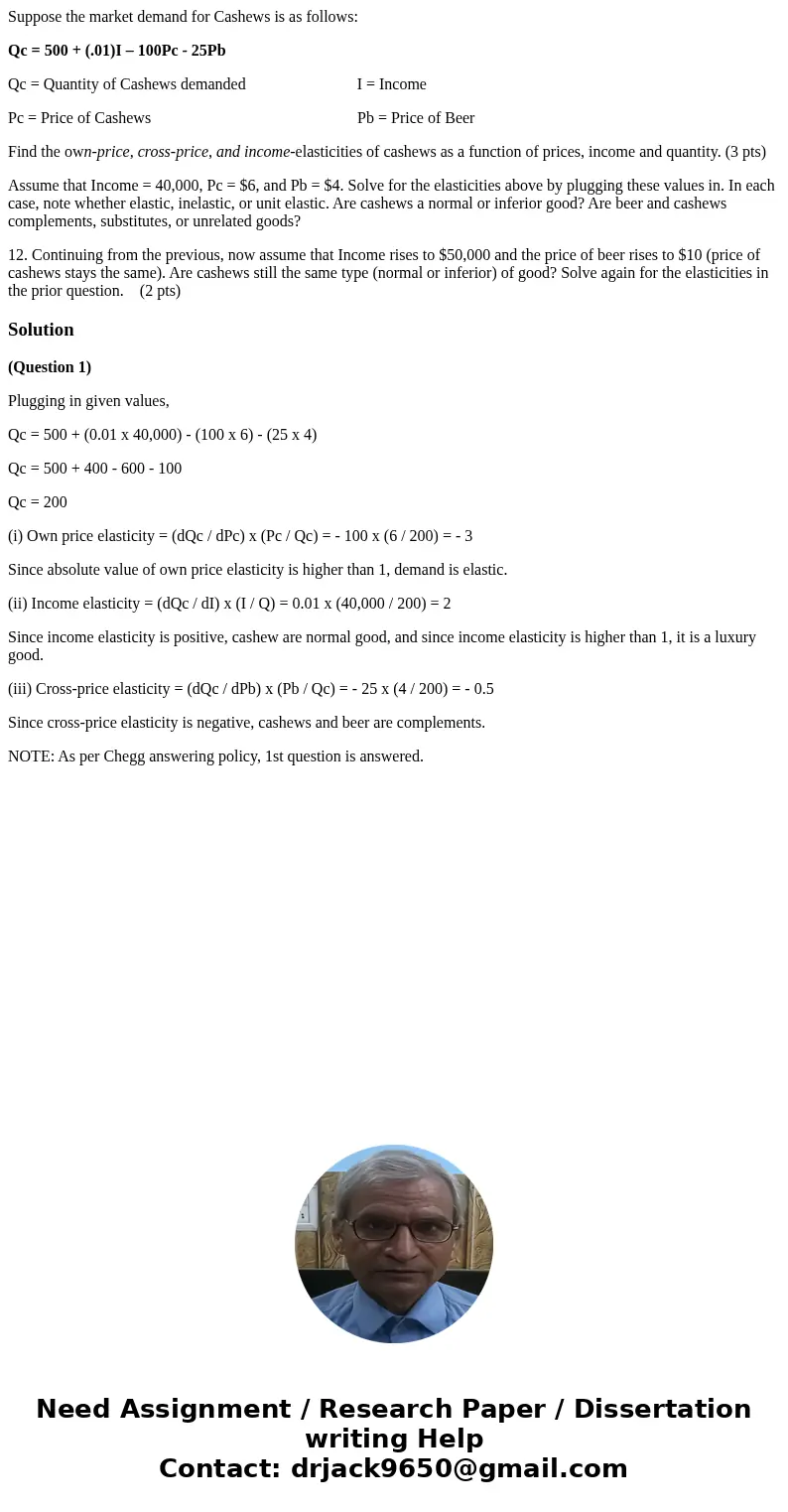Suppose the market demand for Cashews is as follows Qc 500
Suppose the market demand for Cashews is as follows:
Qc = 500 + (.01)I – 100Pc - 25Pb
Qc = Quantity of Cashews demanded I = Income
Pc = Price of Cashews Pb = Price of Beer
Find the own-price, cross-price, and income-elasticities of cashews as a function of prices, income and quantity. (3 pts)
Assume that Income = 40,000, Pc = $6, and Pb = $4. Solve for the elasticities above by plugging these values in. In each case, note whether elastic, inelastic, or unit elastic. Are cashews a normal or inferior good? Are beer and cashews complements, substitutes, or unrelated goods?
12. Continuing from the previous, now assume that Income rises to $50,000 and the price of beer rises to $10 (price of cashews stays the same). Are cashews still the same type (normal or inferior) of good? Solve again for the elasticities in the prior question. (2 pts)
Solution
(Question 1)
Plugging in given values,
Qc = 500 + (0.01 x 40,000) - (100 x 6) - (25 x 4)
Qc = 500 + 400 - 600 - 100
Qc = 200
(i) Own price elasticity = (dQc / dPc) x (Pc / Qc) = - 100 x (6 / 200) = - 3
Since absolute value of own price elasticity is higher than 1, demand is elastic.
(ii) Income elasticity = (dQc / dI) x (I / Q) = 0.01 x (40,000 / 200) = 2
Since income elasticity is positive, cashew are normal good, and since income elasticity is higher than 1, it is a luxury good.
(iii) Cross-price elasticity = (dQc / dPb) x (Pb / Qc) = - 25 x (4 / 200) = - 0.5
Since cross-price elasticity is negative, cashews and beer are complements.
NOTE: As per Chegg answering policy, 1st question is answered.

 Homework Sourse
Homework Sourse